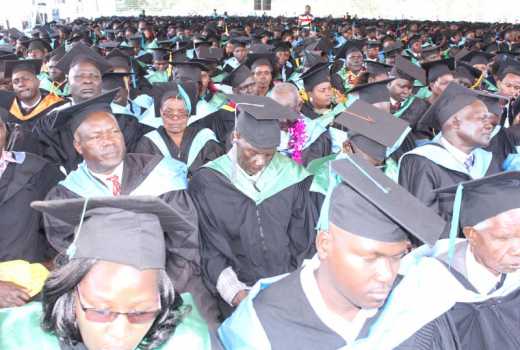×
The Standard e-Paper
Stay Informed, Even Offline

University students who fail examinations or don’t complete assignments will not be allowed to progress to the next class.
These and other far reaching proposals are contained in a report by the Commission for University Education (CUE), which wants institutions of higher learning to ensure respective senates approve the lists of students who move to the next academic class.